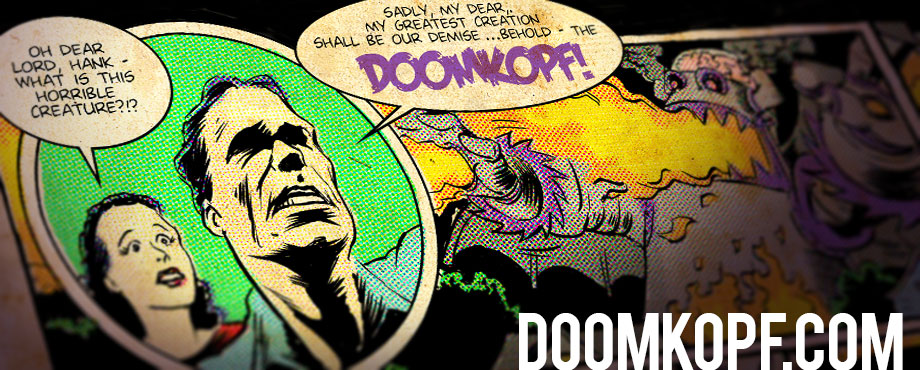The Drop List- 12/19/07
I buy too many comics. Way too many comics. And a lot of them really aren’t very good. But as it was pointed out to me this weekend, I have a very strong inner completist, and I find it incredibly hard to stop buying a monthly series. I’ve struggled through Peter Milligan on X-Men and Brad Meltzer on Justice League of America because I figured it was only a matter of time until they left the book and it got good. I even kept buying Marvel Knights Spider-Man during the Reggie Hudlin’s run, and that guy’s about the worst comic writer ever (keep clicking…that’s not just one link).
Now that I have more important things to spend my money on (like rent, food and heat), I’ve decided it’s time I actually hunkered down and dropped a few books from my regular haul. And that sounds like a good excuse to review some comics and post on the blog, if you ask me.
Picked up with JLA #115 (2005)
Dropped with Justice League of America #16 (2007)
The Justice League was bad under Brad Meltzer. While it’s better under Dwayne McDuffie, I wouldn’t say it’s significantly better. My first reaction of McDuffie’s JLA was that it was breath of fresh air after Meltzer’s run. Of course, even carbon monoxide seems like fresh air compared to sarin nerve gas. I like most of the stuff Dwayne McDuffie’s done in comics so far, but he’s not in the same tier of guys like Peter David, Ed Brubaker and Robert Kirkman, who you can usually trust to turn a book around if it’s hit a bit of a rough patch.
It seems like Justice League’s always been in a bit of a rough patch, though. The first arc I read of the book, Crisis of Conscience, had Geoff Johns writing it and was an Infinite Crisis crossover, and not surprisingly was pretty good. But since then, I haven’t enjoyed a single JLA story. World Without a Justice League was terrible, Meltzer’s run was worse, and McDuffie’s first arc was entirely forgettable. I have the first few trades of the Grant Morrison JLA relaunch, and I didn’t think they were very good. It seems like the only guys that can write good JLA stories are Johns, Mark Waid (Kingdom Come, Year One) and Keith Giffen (Formerly Known As…), and usually they’re either out of continuity or featuring a cast of C-listers.
Maybe the combination of these characters is just inherently uninteresting to me. I read the solo adventures of Superman, Batman, Wonder Woman, Green Lantern, The Flash and Black Canary, and I’m usually pretty entertained. But when you put them all together, it just doesn’t seem to work. And with the brand-name heroes on the roster, the no-name heroes never get that chance to shine. I don’t care about Vixen, Red Tornado, Geo-Force and Black Lightning because I’m not familiar with them, and with a cast of twelve, there isn’t time to properly introduce these characters to new readers.
The Justice League is such a cool concept, and it should work. But it doesn’t right now, so I’ll just have to wait until it does again.
Picked up with Exiles #1 (2001)
Dropped with Exiles #100 (2007)
My second drop this week was a considerably easier pick. Exiles has been one of my absolute favorite comics since it debuted in 2001. In a little over six years, the series produced 100 issues (and an annual), and all but the last eleven were incredible.
At the start of 2007, Chris Claremont took over the writing chores, and the quality of the series took a drastic turn for the worse. The overall tone of the series changed from relatively light-hearted to pretty depressing. Instead of travelling to many diverse worlds, Claremont focused on two worlds that showcased alternate versions of the Fantastic Four (because that’s never been done before).
The biggest change Claremont made was bringing his pet project Psylocke into the series as the lead in Exiles #90, replacing series stalwart Blink (the character for whom the series was created). By #100, all but two of the team Claremont started with had been replaced. Exiles has always been a book featuring a rotating cast, so it isn’t the change itself that bothered me. What bothered me was that whenever a team member had been replaced, it was usually because that team member had sacrificed themself for the betterment of the multiverse. Even when faced with the possibility of returning to their home dimensions, the Exiles chose to remain a team because they had grown to care for each other and felt the work they were doing was important. When Claremont came on board, that was all thrown out the window, and team members started resigning for almost no reason. But I guess if I was being written by Chris Claremont, I’d try to get out of there as fast as possible, too.
Exiles #100 ended the run on the original series, which is relaunching as New Exiles in just a couple of months as an easy jumping-on point for new readers. I’m taking this chance as a great jumping-off point. Exiles just isn’t the same book it once was, and it won’t be as long as Claremont has the reins (which judging by his other work will probably be quite a while).


